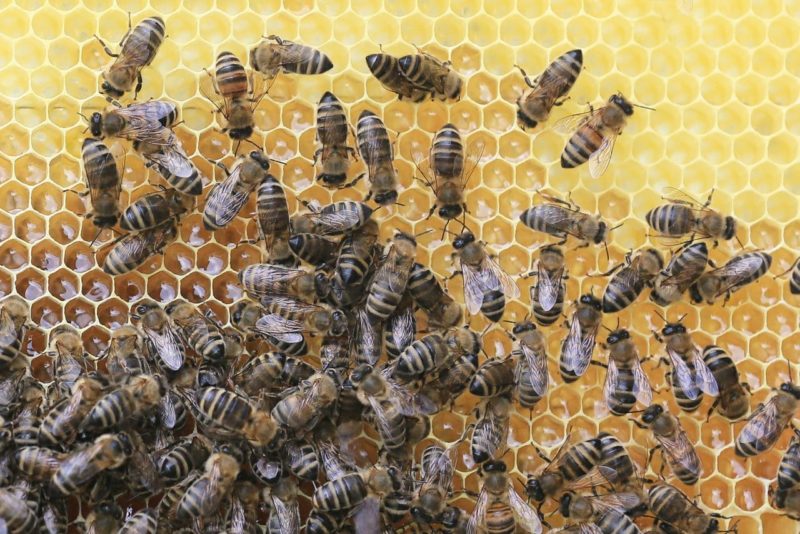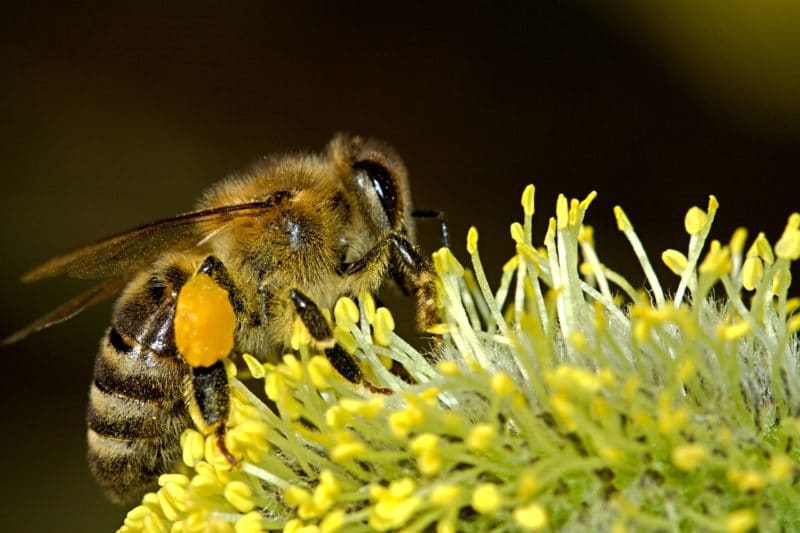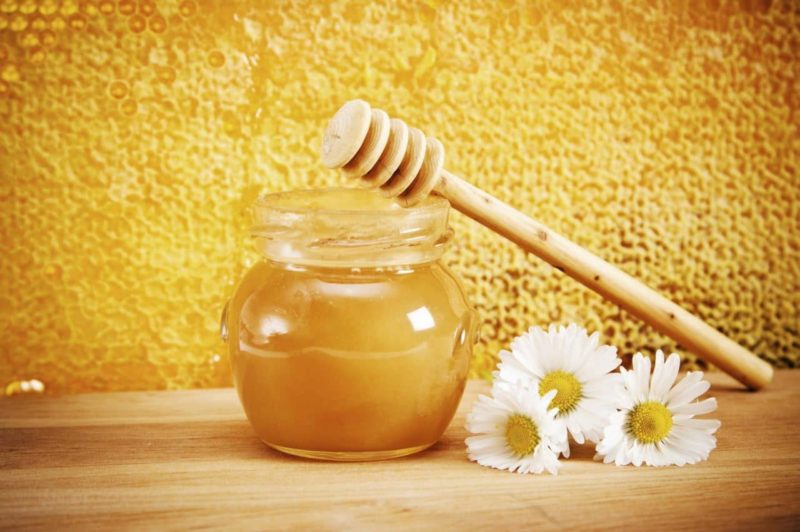Bees play a crucial role in our daily lives by pollinating a third of all we eat as well as grasses that cows and other animals eat; without bees our world wouldn’t be nearly as pretty, as they pollinate flowers, plants and trees as well. We can also thank bees for the unique and healthful substances they produce.
 According to James Fearnley, one of the most renowned experts on bee propolis and bee products, honeybees are a flying pharmacy and the propolis, bee pollen, royal jelly and honey they craft are wonderful natural medicines. Bee products have been used since ancient times – indeed, propolis, due to its incredible antimicrobial properties, is what Egyptians used in the mummification process. Propolis alone has over 2,000 studies on its use for human health.
According to James Fearnley, one of the most renowned experts on bee propolis and bee products, honeybees are a flying pharmacy and the propolis, bee pollen, royal jelly and honey they craft are wonderful natural medicines. Bee products have been used since ancient times – indeed, propolis, due to its incredible antimicrobial properties, is what Egyptians used in the mummification process. Propolis alone has over 2,000 studies on its use for human health.
Consumers are becoming more aware of the benefits of bee products and demand has been growing steadily over the last five years. The global consumption of propolis has a projected 3.5% annual growth rate; bee pollen has a CAGR of roughly 6.0% over the next five years; royal jelly has a projected 2.9% CAGR; and honey has a CAGR of around 4.8% between 2019 and 2025.
Unique among all God’s creatures, only the honeybee improves the environment and preys not on any other species ~ Royden Brown
Buying sustainably and responsibly sourced bee products creates demand which encourages more people to keep bees – and beekeepers are crucial to help honeybee colonies grow and thrive. Bee numbers have been on the decline for years due to a number of reasons: pesticides; loss of habitat and food to forage on (nearly 97% of flower-rich grass and meadowland has disappeared since the 1930s); as well as a reduction in the number of beekeepers which has dropped dramatically in the last 50 years.
However, thanks to increased demand for bee products that trend is reversing, and what a wonderfully rewarding and purposeful occupation beekeeping is!
What’s so great and unique about bee products anyway?
Let’s start with bee propolis – a spectacular substance which bees make from resins they collect from plants and trees. Propolis is incredibly nutrient-dense and has anti-bacterial, anti-viral, anti-fungal and anti-inflammatory actions. The immune supporting actions of propolis have been the focus of numerous clinical studies, which have proven it to be effective in promoting the body’s natural defences both internally and externally.
Bee pollen is the only food known to contain the full spectrum of vitamins, minerals and all of the amino acids. Studies show bee pollen exerts highly beneficial biological activities for the recovery of muscle protein and energy metabolism. Many people take bee pollen to help combat seasonal hay fever by reducing their body’s histamine response to pollens. Nutritional therapist Sally Wisbey explains that bee pollen is a pre-digested food, which easily moves through the digestive tract, is quickly absorbed and utilized by the body and contains nutrients which help enhance stamina and energy.

Honey is not only delicious but can assimilate quickly for energy – studies show it’s a great substitute for energy drinks and gels. It also is useful topically in wound healing and has been shown in studies to be useful in aiding immune function, sleep, cognitive function and more. Not all honeys are not created equal though; honey fraud is a growing global issue. It’s best to buy honey from small, local producers and trusted brands. Raw honey will provide the most health benefits.
Royal jelly is a fascinating substance containing high levels of B vitamins as well as antioxidant nutrients such as vitamin E and A, as well as calcium, copper, iron, phosphorus, biotin, and 17 different amino acids, including the eight essential amino acids that the human body cannot produce. Royal jelly is a nutrition powerhouse which is fed to the queen bee and the larvae. Royal jelly has been used to aid in depression, anxiety, fertility, anti-aging and is also shown to have anti-inflammatory actions. Studies have confirmed in can aid improved cognitive performance and it is shown to contain longevity-promoting factors. In a recent Stanford University study, researchers reported that a main active component in royal jelly could propel a cure for Alzheimer’s and is shown to help build up self-renewal stem cells.
In pure economic terms, honeybees contribute the equivalent of over £400 million to the UK economy
How we can help these very busy bees?
In pure economic terms, honeybees contribute the equivalent of over £400 million to the UK economy and €14.2 billion to the EU economy every year as bees pollinate 84% of crops across Europe. Bees also pollinate wildflowers, which are often the cornerstone of complex food chains upon which insects, birds and mammals depend. We can all help bees by eliminating pesticide use, planting more flowers, not mowing lawns and meadows, helping beekeepers by buying ethically produced bee products and supporting bee causes.











